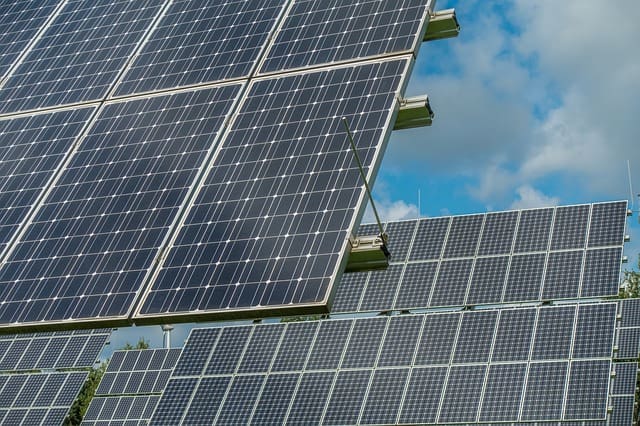
Expanding the existing electricity grid in Africa would be hugely expensive for both governments and communities. Meanwhile, more than 80 per cent of the continent’s existing electricity supply is generated by fossil fuels, causing damaging pollution and climate change.
In a bid to increase access to electricity in sub-Saharan Africa without harming the environment, researchers at Ulster University are developing a distributed energy network, based on solar power and battery storage. The SolaNetwork project, funded by EPSRC and Innovate UK, will develop and trial an interconnected network of standalone solar systems, according to lead researcher Dr Jayanta Mondol of the Centre for Sustainable Technologies at Ulster University.
Each system will consist of photovoltaic solar panels to generate electricity for lighting, heating and powering appliances; a solar thermal collector (called SolaCatcher) to provide hot water; a battery to store excess electricity; and a platform that uses mobile, cloud, and blockchain cryptographic technology to provide energy services to the community.
“The idea is that when the sun is shining electricity is produced by the photovoltaics, and is fed to DC appliances,” said Mondol. “Any excess electricity is then stored within the battery.”
The work builds on a previous project, known as SolaFin2Go, in which the researchers developed and tested individual solar systems for off-grid households in Botswana. They will now scale-up the technology, connecting together 20 systems to form a virtual and physical node-to-node network. A monitoring and control system comprising sensors and a two-way communications connection will manage the delivery of energy services and provide business data.
“We have developed a mobile network for the village that can be used to monitor the system performance remotely,” said Mondol.
The project will also aim to help users to finance the system. For example, the researchers are investigating the use of a battery rental programme, to avoid users having to buy the system up-front. Households will also be able to use excess electricity to pay for the service, through a battery trading system.
“Usually this kind of system would be expensive, but instead users can pay their costs through their electricity generation, so they don’t have to pay up-front,” he said.
The solar network will be operated and maintained by a not-for-profit Distributed Energy Service Company (DESCO), formed of members of the local community and project stakeholders. The DESCO will manage electricity trading between individual consumer-producers, and provide training to the local community in using and maintaining the technology. In this way, the project will also help to develop skills and employment in the local area.
In particular, the researchers hope to have a positive impact on the lives of women in sub-Saharan Africa. They will hold information forums to consult directly with female villagers, disseminating information on the project and its implications for households.
“We would like to focus particularly on the employment of women, to improve their quality of life,” said Mondol. “Women [in sub-Saharan Africa] spend a lot of time cooking over open wood fires, but our technology can give them electricity and hot water, so it could also improve their lifestyles and health."
The solar project includes researchers from the Botswana International University of Science and Technology, as well as Ulster University spin-out SolaForm, which is developing the SolaCatcher technology. It also includes technology specialists dpSun and DM Innovations, which develops wireless networking systems, as well as EmPowered FinTech, which specialises in helping people access renewable technologies.




Poll: Should the UK’s railways be renationalised?
I think that a network inclusive of the vehicles on it would make sense. However it remains to be seen if there is any plan for it to be for the...